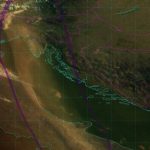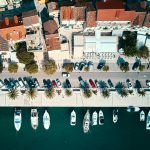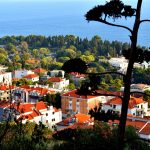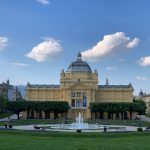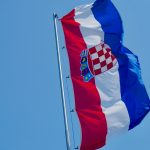Grabar-Kitarović noted in her lecture the role leaders have in building an image of a nation, since “the human face is a powerful medium”
Croatia needs a unique and comprehensive national strategy to brand itself, it was stated on Monday by Croatian President Kolinda Grabar-Kitarović and Parliament Speaker Gordan Jandroković, noting Croatia has to point out its differences and not base its image only on tourism and natural beauty, as Večernji List reported on May 29, 2017.
“Branding of a nation presumes the definition of a comprehensive strategy whose enactment includes state authorities, domestic and foreign policies, but also the non-governmental sector, various agencies, cultural and sports sectors in which marketing and promotional tools are only a portion which can follow, but not shape the strategy,” said Kolinda Grabar-Kitarović in her lecture “Croatia and the World, Geopolitical and Geostrategic Framework” at the conference “Croatia we Need: Branding Croatia” which took place on Monday.
Parliament Speaker Gordan Jandroković emphasised the “strengthening of our own identity, creation of an image and brand must be harmonised and coordinated at all relevant levels which send messages about Croatia into the world. This is an important task in the future successful branding of the nation.”
Other speakers included Božo Skoko from the Faculty of Political Sciences and diplomat Zvonimir Frka Petešić, who also emphasised the importance of a unique and comprehensive national strategy with a clear framework and harmonised messages.
The conference brought together politicians and experts, including some ministers, MPs and MEPs and representatives of various institutions, among them also the Assistant General Secretary of the United Nations for Human Rights Ivan Šimonović.
Grabar-Kitarović said in her lecture that “in a globalised world the image of a nation plays a very important role.” She pointed out that personalisation is also important, meaning the role leaders have in building an image of a nation, as “the human face is a powerful medium,” used to perceive the politics of a state. “However, the role of leaders must be accompanied with concrete political and institutional actions which maintain long-term credibility,” she said.
It will be interesting to follow the development of the image of the United States after the arrival of Donald Trump and how much will he as a person influence the formation of the outer perception of his country, the President stated.
To achieve successful global branding, Croatia must find areas which make it different than other countries as this will be her added value, said Grabar-Kitarović. “It is important to ask what makes a nation different and attractive. This is what matters and something we forget sometimes. We must emphasise differences,” said the President.
The importance of promoting differences was also mentioned by Jandroković, stating it is “the duty of politics to secure a political framework and political stability as a precondition of everything else, clearly define political and economic goals, strengthen the international position and reputation and define areas which separate us from other nations, which are our added value and advantage,” he said.
Croatia should compare itself to, as Skoko said, other smaller countries comparable in size with Croatia, who built a good image – Denmark with Lego, design or Hans Christian Andersen, The Netherlands with windmills, tulips and orange colour or Switzerland which immediate associations of cheeses, watches and banks, not allowing the image of Croatia to be created by others, such as happened to Kazakhstan after the movie Borat.
“Kazakhstan had to invest huge efforts into rebranding their image in the world, and it is still trying,” also said the President, mentioning the effect of that movie on the reputation of Kazakhstan.
Croatian diplomacy, said the President critically, is not doing enough to promote its country and is often “confined to offices.”
“We want to see a more assertive, self-aware, stronger Croatian foreign policy. We want to see a much bigger accent on public diplomacy and economic diplomacy. I must say I am extremely disappointed when I hear from our entrepreneurs or others who visited other countries that our diplomacy, with exceptions, has closed itself into offices, not acting to aid companies nor to brand Croatia in the sense of public diplomacy,” said the President.
She stated Croatia needs to be economically profiled and it cannot rely just on tourism which is “overly volatile. We need to work with the aim of strengthening the economy. We must also globally reposition, as Croatia is part of the Balkans, Middle Europe and Mediterranean, and this in that segment I emphasise the Three Seas initiative,” she said.
“Today we are primarily recognised as a tourism country. It is recognised as an attractive and safe European, Mediterranean and tourism destination, as one of the ecologically most preserved countries of the EU, with a rich cultural and historical heritage, geographically connecting Middle Europe and Mediterranean, the crossroad of diversity. But the fact is we must make additional steps in promoting our own identity and in creating an image,” said Jandroković.
“Croatia should not be dissatisfied either, but its potential provides greater possibility; strategic branding needs work, and today it is very important to build a brand as it reflects on a state’s political and economic status,” said Skoko, adding branding needs innovation and creativity, and that money is not the decisive factor.



